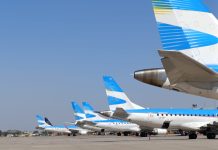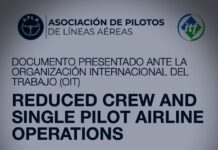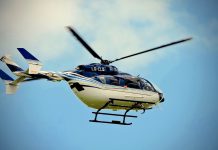Cabin air quality issues
Background
When jet airliners were introduced in the late 1950s, two methods to pressurise and condition the cabin air were designed: Pratt & Whitney fitted turbo compressors to the JT3 engine (as used on the B707 and DC-8) while Rolls Royce chose a bleed air system on the Avon engine (used on the Caravelle). The FAA had mandated the use of turbo compressors because of the risk of cabin air becoming polluted due to leaks in the compressor bearings.
As engine design improved, oil entering the bleed air system from leaks in the bearings was sharply reduced and since the bleed air system was light and more fuel efficient than the turbo compressor system this system became standard as second generation jets for example the B727, DC9 and B737 were introduced
Arrival of high by-pass engines in the early 1970s led to new constraints on low-pressure stage bearings, and engine manufacturers concentrating on engine thrust underestimated this issue. This is a trend which has continued to today engine manufacturers remain focussed on improving thrust, fuel efficiency and engine emissions and reduction in consumables use. For example, in the latest version of one large engine oil consumption is half of that of the preceding models because bearing number 3 is pressurised. As this bearing is placed upstream of the air bleed supplying the air-conditioning devices, oil fumes may enter the packs and can pollute cabin air. As air flowing through the bleeds is not filtered, cabin air can be contaminated by chemicals from the engine oil. This has been recognised by Regulation Authorities, scientists, airlines, occupational doctors, oil manufacturers and crew unions. However, consequences of such leaks are not unanimously accepted.
Are crew members exposed to health risks?
According to a cabin air sampling study performed in BAe146 and B757 cabins for the UK Department for Transport by Cranfield University and published January 2008, various hazardous chemicals have been found (e.g. toluene, tri-butyl-phosphate (TBP) and tri-cresyl-phosphate (TCP)). TBP and TCP are characteristic of hydraulic fluids and engine oils.
The effects following inhalation of the heated products of synthetic jet engine oils and hydraulic fluids can be similar to those experienced following inhalation of any volatile chemical (e.g. new paint).
Crew action
The first action in the event of smoke or fumes in the flight deck should be for the flight crew to don oxygen masks and establish communications. If during flight it appears that both pilots are suffering from some form of incapacitation or that one pilot appears to be in any way incapacitated for no obvious reason, then the flight crew should don oxygen masks without delay.
Operations manual procedures should contain detailed instructions to crews on the necessity to use oxygen masks at 100% whenever contamination is present or suspected and the need to establish communications by the appropriate switch selections.
In addition, cabin crew should monitor the flight deck, but this should not be to the detriment of other emergency procedures such as dealing with cabin smoke or fires, especially where only one cabin crew member is carried. Incapacitation procedures should be practised regularly during recurrent training and case based studies should be discussed at joint flight deck/cabin crews safety training. The potential for a smoke/fumes event to adversely affect the subsequent operating effectiveness of the flight or cabin crew must be considered.
Flight and cabin crews are advised to take the following post-flight actions following a smoke/fumes incident:
– Review of the in-flight incident by the aircraft commander which should include consultation with the flight and cabin crew;
– Determine whether any crew member felt unwell, or whether their performance was adversely affected; and
– Require any crew member who felt unwell, or felt their performance was affected, not to operate as a member of the crew until they have been assessed as fit by a medical practitioner and feels fit to operate.
– Report the event via an ASR
The need for research
The quality of cabin air is a matter of great concern; however, lasting solutions require that the entire industry works together.
Most of the alarming press releases on this subject have appeared in the United Kingdom and focused on the possible risks of organophosphates in the cabin air. It is therefore in the UK that much work on this subject is presently being performed. BALPA (British Airline Pilots Association) and the UK Governments Aviation Health Working Group agree with the Committee on Toxicity that it would be better to start from the premise that it is not known what causes ill health and to research all possible contaminants.
IFALPA insists that this research must be:
1) Scientifically unimpeachable
2) Reproducible
3) Subject to peer review
As soon as results based on this scientifically sound research are availible the Federation will further develop its position.
















